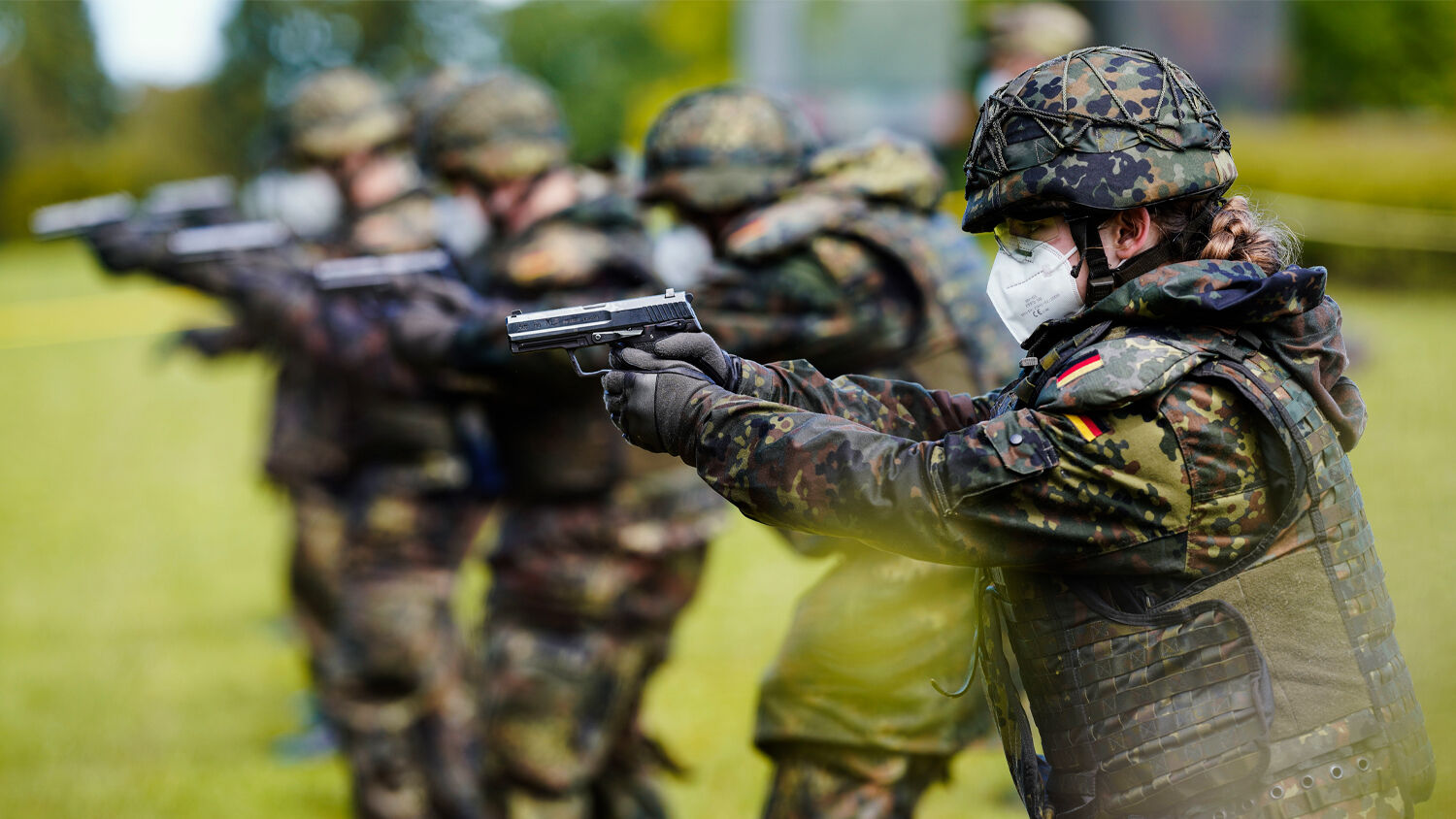
A National Leadership Command for the Bundeswehr
For years, we have been told that the German military is not ready for combat. Defense Minister Annegret Kramp-Karrenbauer and many high-ranking officers believe that the problem has less to do with finances and more to do with structure. On May 18, together with Inspector General Eberhard Zorn, the highest-ranking soldier, Kramp-Karrenbauer presented a reform plan for the military.
The plan is designed to improve the operational capability of the Bundeswehr with a national command. “Benchmarks for the Bundeswehr of the Future” states: “The capability for rapid initial operations in response to an escalating military crisis requires a cold start capability. … A high level of operational readiness even in peacetime is essential” (Trumpet translation throughout). The reform aims to use this time of relative peace to prepare for rapid warfare.
“This requires the best possible units of ammunition and support forces that are structured, trained and equipped for rapid deployment,” the paper continues. “They must be rapidly deployable, scalable for different scenarios and agile, i.e. capable of rapidly forming centers of gravity.”
Forces must be able to deploy quickly, “especially at the external borders of the alliance.” The Army must also prepare to contribute to international crisis management “over longer periods of time with troop contingents.” Within the North Atlantic Treaty Organization, the European Union and the United Nations, the Bundeswehr must also be capable of leading such units, the paper states.
To cover its broad span of command, the paper notes, “The Bundeswehr needs a functional and resilient territorial command organization. The national territorial commander must be able to perform his tasks seamlessly across all functions: from command and command organization in peacetime to crisis or domestic emergency to tension or defense. This requires strengthening the competencies and structures assigned to it.”
The national territorial commander will also be able to coordinate “the deployment of armed forces within the framework of nato and EU operations and is responsible for homeland security and national territorial defense.” The national command should steer missions from Berlin and Bonn.
The reform mainly aims at decreasing leadership staff so that fewer people can make more decisions. Whether Kramp-Karrenbauer’s plans will be administered as stated or not, the desire for reform is clear. In an April 2017 article for Bild, retired Brig. Gen. Erich Vad, who also served as Chancellor Angela Merkel’s chief military policy adviser, compared Germany’s military spending to the State of Israel’s. He concluded that the Bundeswehr’s problem isn’t a lack of funds, but rather too much bureaucracy:
The Bundeswehr is an over-bureaucratic mammoth agency or “company”—as the new Inspector General Zorn once described our Bundeswehr. …
The Bundeswehr indeed has a leadership problem! The military leadership culture is far removed from the actual purpose of the armed forces: its combat mission. …
All military aspects in this country are in any case under general suspicion. The focus is more on gender equality, daycare centers, flat screens and other civil society accessories in the Bundeswehr. The media rejoices over the occasional scandals in the Bundeswehr. The hate and glee are unmistakable.
The general demand is simple: Empower the leadership and you empower the Army. There is, however, a profound reason Germany’s military is in a dysfunctional state. In February 1945, United States President Franklin Roosevelt and British Prime Minister Winston Churchill announced their “inflexible purpose to destroy German militarism and Nazism and to insure Germany will never again be able to disturb the peace of the world. We are determined to disarm and disband all German armed forces; break up for all time the German General Staff that has repeatedly contrived the resurgence of German militarism ….”
The Allied leaders specifically pushed to break up the German General Staff. Germany today wants to reverse this. Trumpet editor in chief Gerald Flurry posed the following questions in 2014 about Germany’s military rise:
What does Germany do when it gets a strong military? Do you dare read its history and see? Once that military is in place, it will be put to use! This world doesn’t comprehend that because it doesn’t understand history and Bible prophecy. We just have to look at the truth to understand what we’re dealing with. Everything is moving at lightning speed.
Reading the goals of Germany’s military leaders, one is reminded of a prophecy that speaks of the nation’s imminent future. “And in the latter time of their kingdom, when the transgressors are come to the full, a king of fierce countenance, and understanding dark sentences, shall stand up. And his power shall be mighty, but not by his own power: and he shall destroy wonderfully, and shall prosper, and practise, and shall destroy the mighty and the holy people. And through his policy also he shall cause craft to prosper in his hand; and he shall magnify himself in his heart, and by peace shall destroy many: he shall also stand up against the Prince of princes; but he shall be broken without hand” (Daniel 8:23-25).
A strong German leader is prophesied to rise. He will promise to solve the conflicts of the world, quickly moving Europe’s armies, led by Germany. But instead of peace, he will bring destruction. Current events in Germany are preparing the way for his rise. These prophecies are extremely urgent. I encourage you to request a free copy of Nahum—An End-Time Prophecy for Germany, by Gerald Flurry, to learn where these events are leading.
